Event Name: MOCK PARLIAMENT
Objective:
Outcome:
BRIEF REPORT:
As part of the academic curriculum for the subject Public Policy and Governance, a Mock Parliament was conducted. The students took on roles of the ministries such as Ministry of Home Affairs, Ministry of Finance, Ministry of Defence, etc. Students were also appointed as Media Personnel and Secretary General. Students were assigned for the roles of Prime Minister and the Speaker each, who facilitated the overall discussion of the Mock Parliament.
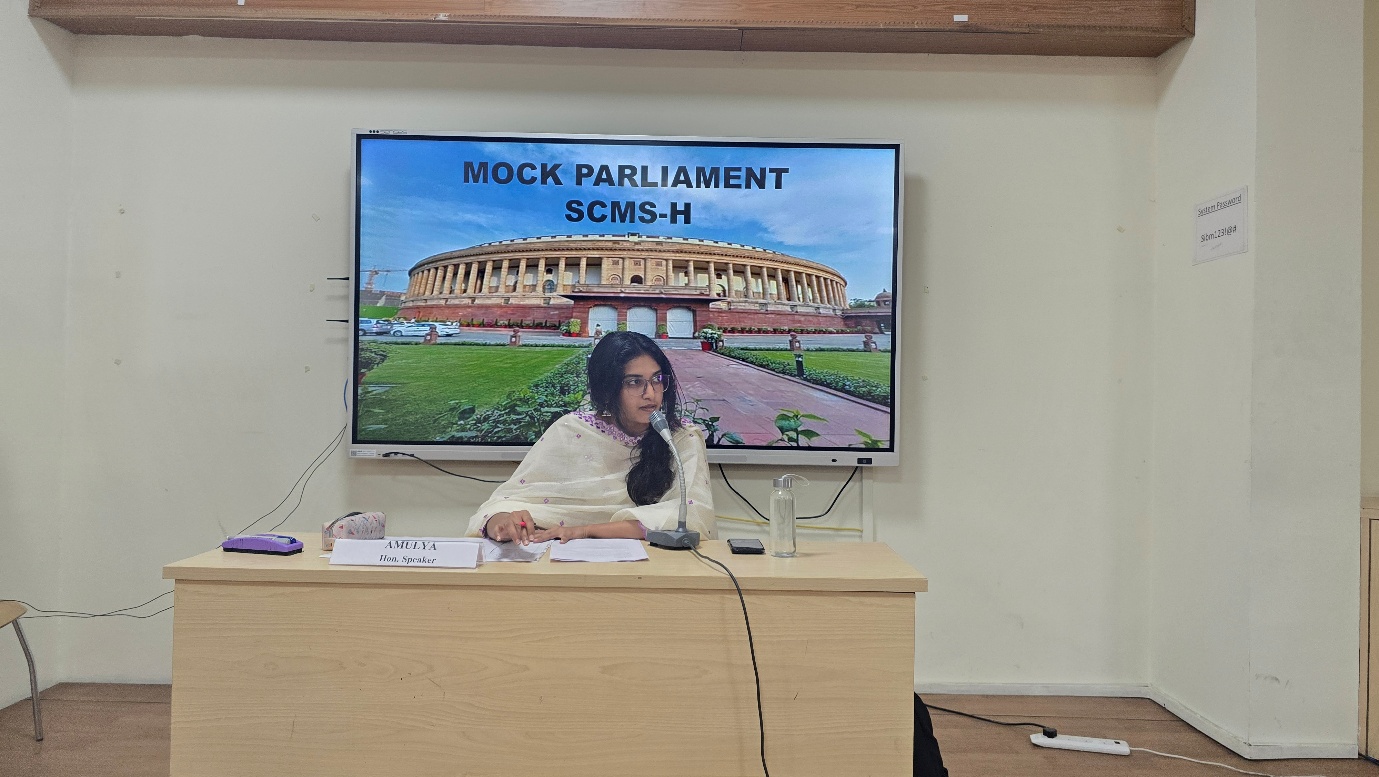
(Speaker of the House (Amulya) initiating the Mock Parliament)
The event began with a formal address by the Speaker of the House, who laid down the rules and maintained order throughout the session. The Mock Parliament proceeded with the speech of the prime minister which gave a stage for debates among the Ruling Party and the Opposition Party. The Ruling Party consisted of the following ministries; Ministry of Home Affairs. Ministry of Finance, Ministry of Defence, Ministry of External Affairs, Ministry of Education, Ministry of Health and Family Welfare, Ministry of Environment, Forest and Climate Change, Ministry of Agriculture & Farmers' Welfare, Ministry of Labour and Employment, Ministry of Railways, Ministry of Women and Child Development, Ministry of Tribal Affairs, Ministry of Information and Broadcasting. Bills were introduced and debated upon, with strong arguments from both the Ruling Party and the opposition.
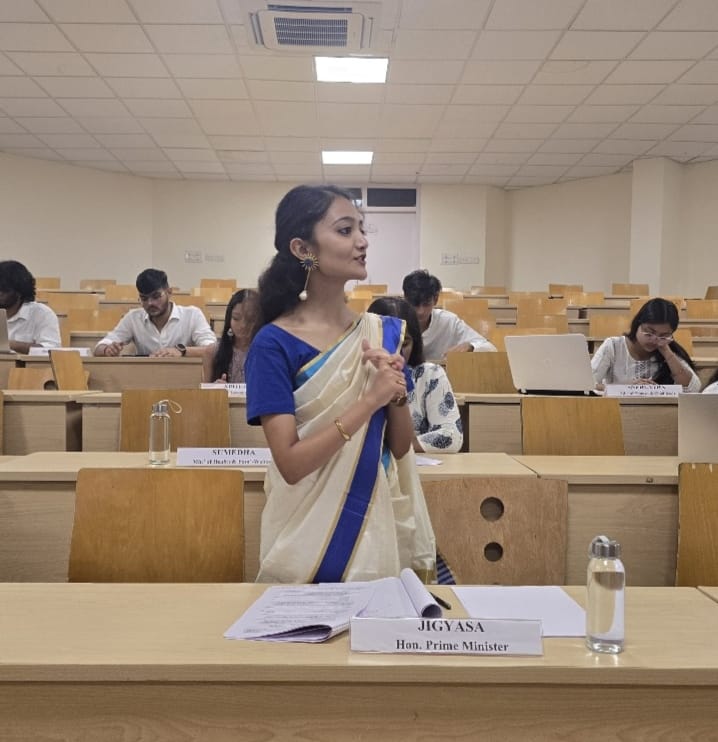
(Honourable Prime Minister (Jigyasa) facilitating the discussion)
The highlight of the session was the intense and thought-provoking debate between the Ruling and Opposition Parties. A bill of national relevance was introduced by a member of the Ruling Party, after which a detailed discussion unfolded. The Ruling Party defended the bill with strong arguments, citing statistics, case studies, and policy references. They emphasized the long-term benefits of the bill and its alignment with national interests, while the Opposition Party were critical in their opinions of the bills and expressed their opinions accordingly.
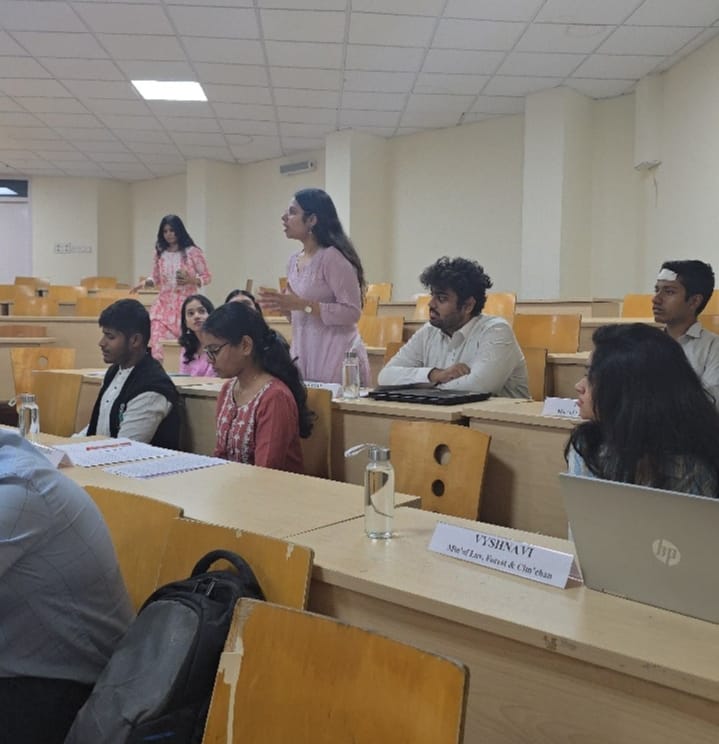
(Member of the Ruling Party (Anjali) presenting their points)
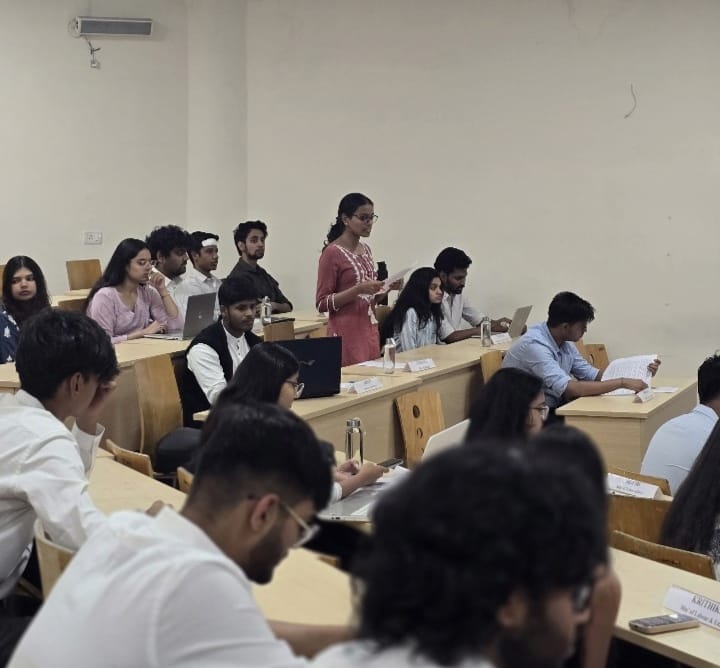
(Ministry of Defence (Samhita) discussing the bills passed)
Both the Ruling and Opposition Parties presented their arguments with clarity, depth, and a strong understanding of the issue at hand. Members actively questioned each other’s standpoints, drawing attention to potential strengths and flaws in the proposed bill.

(Member of the Opposition Party (Shreyas) discussing)
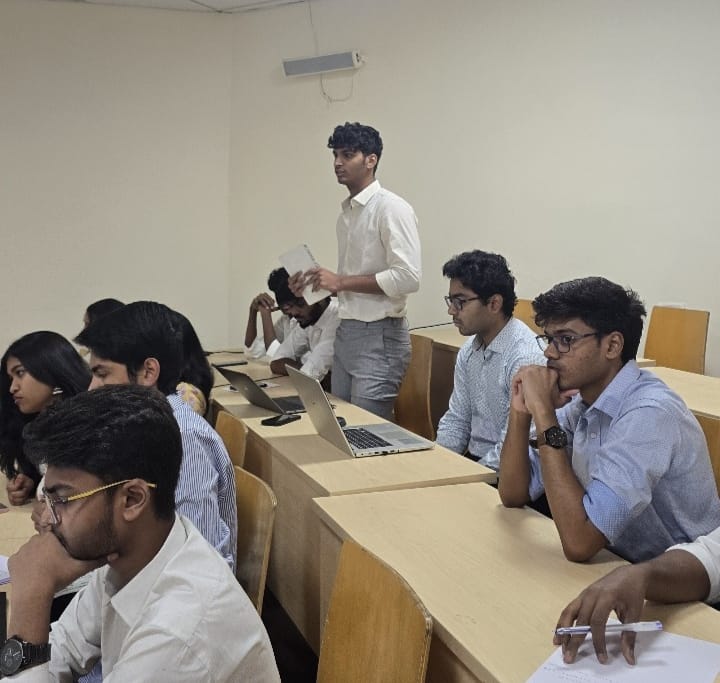
(Member of Opposition Party (Sougandh) sharing insights)
The Secretary Generals played a crucial role by recording the minutes of the meeting, ensuring accurate documentation of the proceedings and keeping note of every debate. The Media Committee closely monitored the proceedings and prepared reports and press releases on the session. The Secretary General's note-taking ensured transparency and accuracy in documenting the legislative process. This record served as a valuable reference for evaluating the outcomes of the session. Towards the end of the session, media personnel from the Press Committee were given the floor to ask questions to various party representatives.
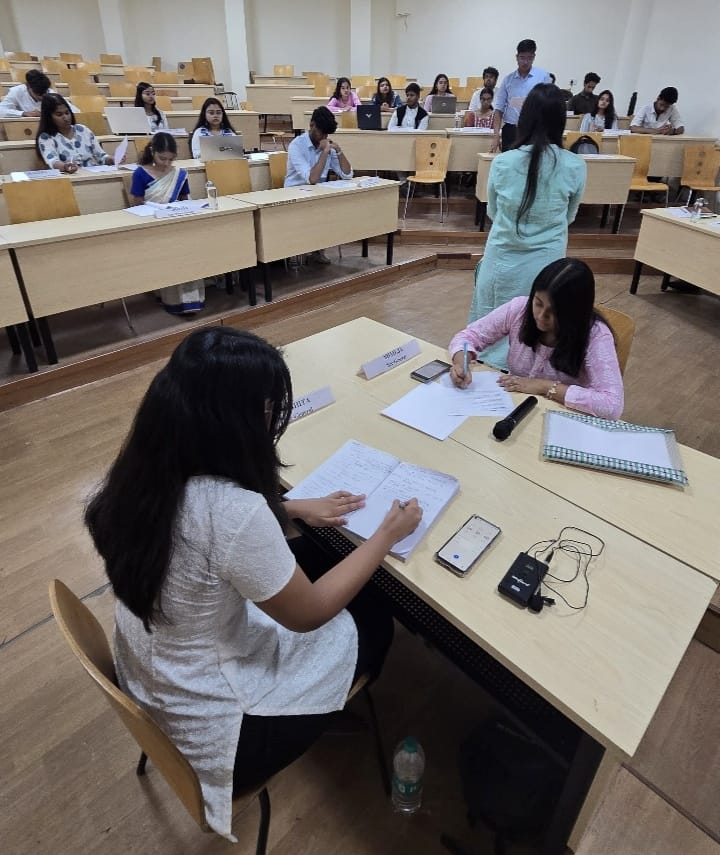
(Secretary Generals (Yoshitha and Shailja) noting down minutes of the meeting)
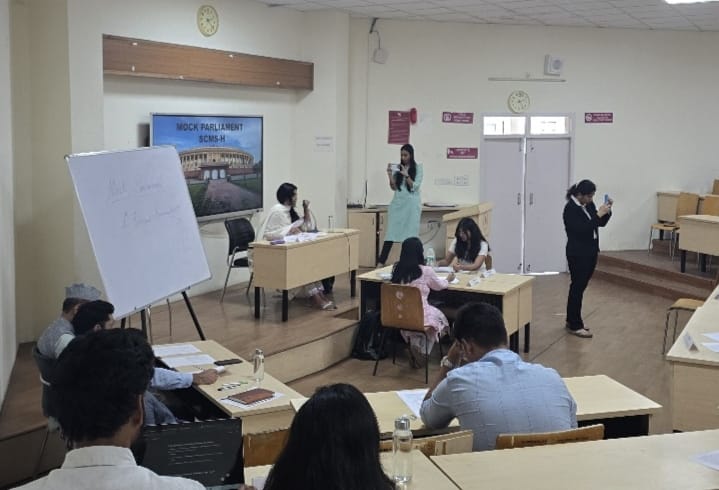
(Media Personnel (Nida & Apeksha) capturing the event)
The session ended with the students standing up for the national anthem.
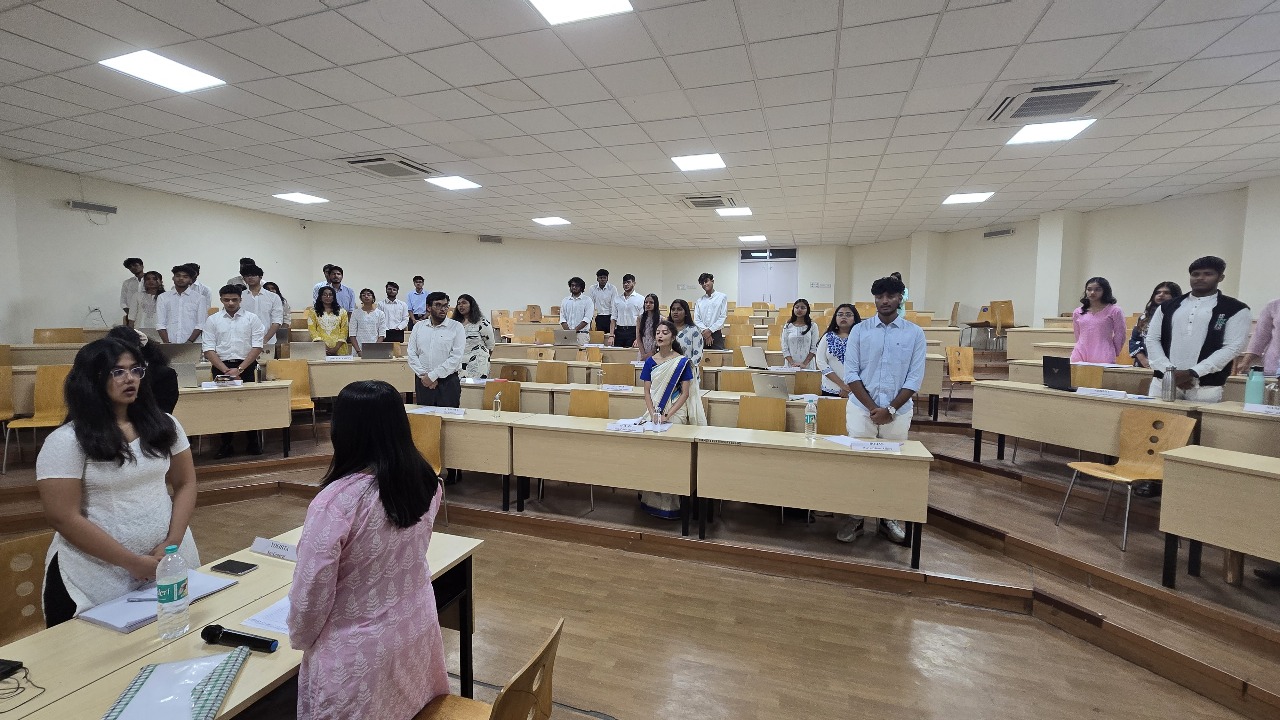
(All members of the assembly standing up for the national anthem)
Conclusion
Overall, the session was dynamic, intellectually stimulating, and offered a rich learning experience. It brought theoretical knowledge to life and gave every participant a chance to explore the essence of democratic governance.
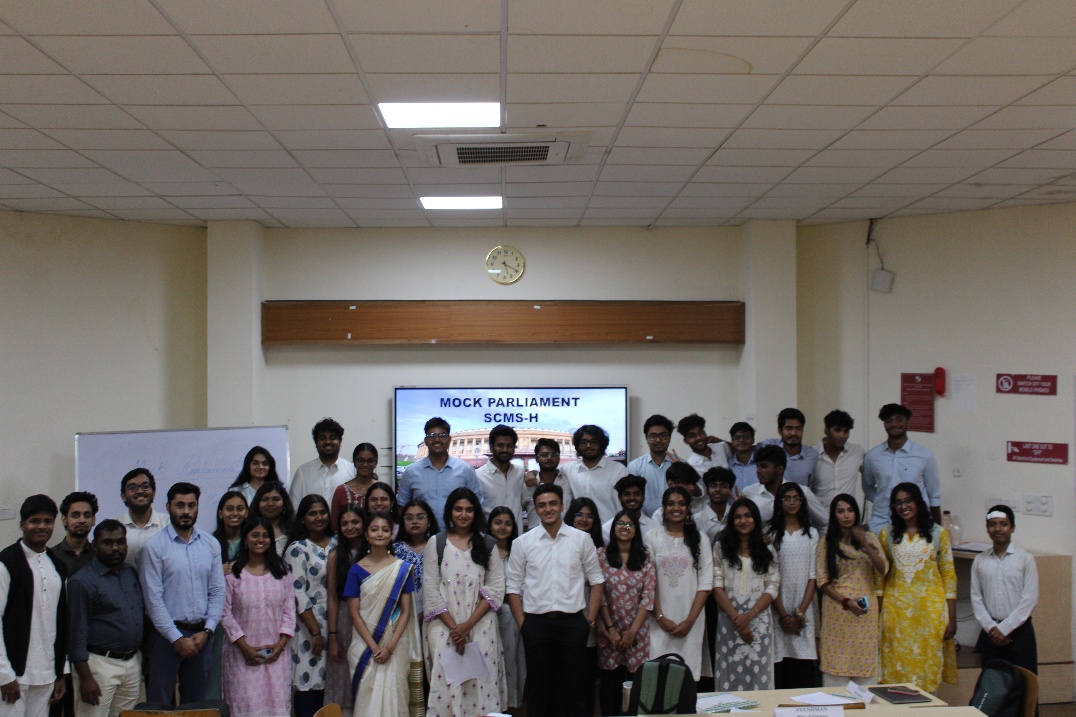
(BBA batch (2022-2025) along with the faculty concluding the Mock Parliament)